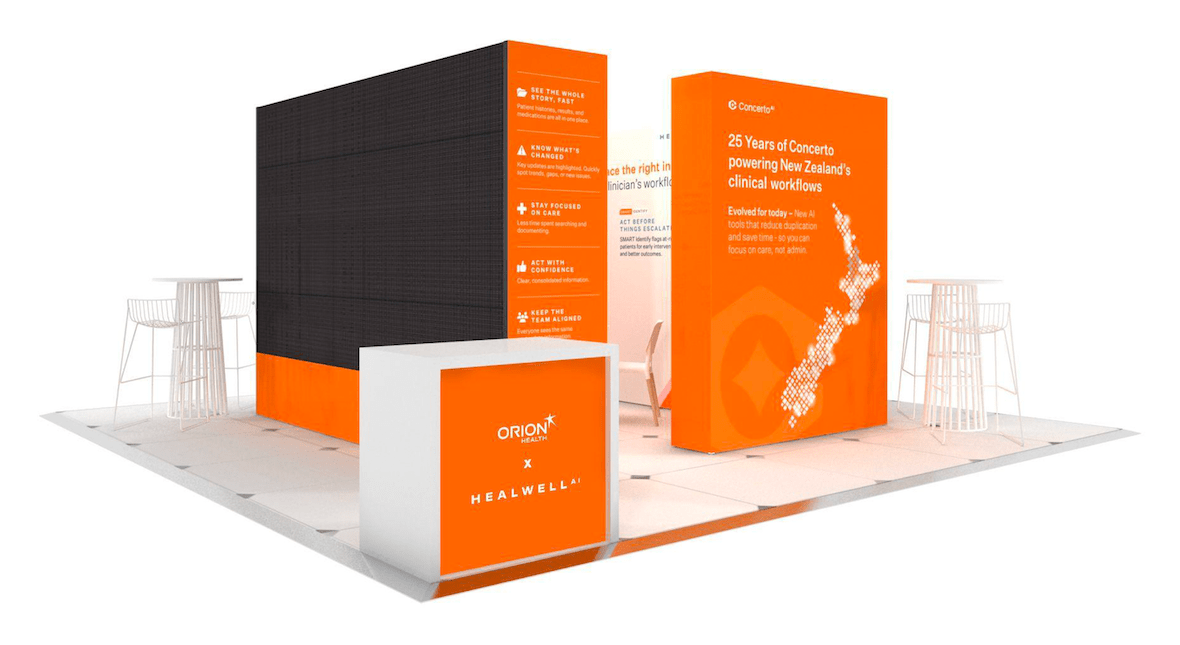By Ian Binks, Business Development Director, Orion Health
November was one of those months that reminds you why this work matters. I attended some key industry events including the NHS Shared Care Record (ShCR) Summit, the Public Policy Project’s (PPP) Integrated Care Delivery Forum, and the EHR Wales summit. I also had the opportunity to contribute to panel discussions, round tables and a live webinar organised by Healthcare Innovation Consortium’s EPR Network. Across all of them was a real sense of shared purpose in the face of immense challenge.
Each event explored a different piece of the same puzzle: how we connect information, people and services to deliver more joined-up, person-centred care. The conversations kept coming back to a single question: how do we turn the ambitions of the NHS 10-Year Plan into something real? Collaboration, shared standards and the smarter use of data will all play a part in the answer. The Shared Care Record, and in time the Single Patient Record, will be key to turning that vision into everyday practice across health and care. Spending time at these events gave me a chance to step back, listen and reflect on where we are as a system, and where the next steps will take us.
1. Progress happens when collaboration is genuine
The Shared Care Record Summit showed what progress looks like when collaboration is genuine. It wasn’t about presentations or headlines, but about people openly sharing lessons, challenges and solutions. A particularly poignant story of a mother’s battle to gather the support her son desperately needed showed us the true cost of disconnected systems and siloed working. Throughout the day conversations felt honest and practical, centred on how we build momentum and genuinely connect health and care information around people.
For me, that is what progress in digital health now looks like. It is no longer about proving the concept but about connecting people and systems in a way that adds real value. When organisations come together with a shared purpose, things start to move faster and more effectively.
2. The IPS is turning interoperability into reality
We’ve been talking about standards and interoperability for decades in healthcare and to be frank, it’s often felt like nothing but hot air. Right now though, the conversation feels different. It feels like there’s a real will on all sides to break down the barriers and make the right information available to the person who needs it in any setting.
The International Patient Summary (IPS) Hackathon at the Shared Care Record Summit proved that interoperability is not a distant goal; it is already happening. Seeing suppliers work together to show how the IPS can move information securely across systems and care settings was a clear sign of progress.
It also reinforced an important point. Standards like IPS are only as powerful as the collaboration behind them. What we saw was a collective effort to turn years of policy and aspiration into something that works in practice. Interoperability is not about technology; it is about enabling safe, informed decisions at every stage of care.
3. Neighbourhoods are where connected care takes shape
At the PPP Integrated Care Delivery Forum, I joined a panel on the role of local government in prevention and neighbourhood health. We often fall into the trap of focussing only on the traditional areas of health and care when thinking about the problems of information flow, but if we really want to build a healthier population and reduce pressure on acute services, we need to broaden our scope to other areas like local government, education and law enforcement. The conversation made one thing clear: integrated care will only succeed if it starts close to home.
Shared Care Records already give professionals across health, social care and local government a shared view of the person, which is vital for planning and prevention. Neighbourhood working depends on that kind of shared insight. If we get the foundations right, it becomes possible to support communities in a more coordinated and proactive way.
4. Data and AI only matter when they help people
Data and technology only matter if they help people. That came through strongly in Dr Chris Pettengell’s session at the ShCR Summit, where he spoke about how AI can help clinicians navigate growing volumes of complex information. It was not a conversation about algorithms or hype, but about how technology can simplify and support. It’s seductive to look for complicated applications of AI to show we’re making progress but for me, one of the most useful things we can do right now is allow people to navigate complex records in a conversational way to find information they may not even know exists but enables an optimal decision.
Similarly, the EPR Network webinar explored what it will take to make the Single Patient Record real. It is about creating a single source of truth, built on shared standards, where information follows the person across every setting. AI and data are not the destination; they are the tools that help us get there.
5. The foundations are in place; now it’s time to build on them
Every discussion across these events pointed to the same conclusion. The Shared Care Record has proven its worth, and the Single Patient Record will build on that foundation. The question now is how we maintain the momentum.
The answer lies in continuing to act together. Progress will not come from waiting for the perfect strategy or new policy. It will come from local action, national collaboration and a focus on outcomes. The alignment is here, the technology is ready and the will to deliver is clear. What matters now is keeping that energy and focus on making connected care part of everyday practice.
Looking ahead
This month showed a community that is aligned, capable and motivated. The ideas are strong, the technology is proven and the determination to deliver connected care is clear.
For Orion Health, our role is to keep supporting that progress by connecting systems, empowering clinicians and helping local teams turn information into insight. The Shared Care Record has created the foundation. Now it is time to build on it. Let’s keep pushing to make truly connected care happen.



